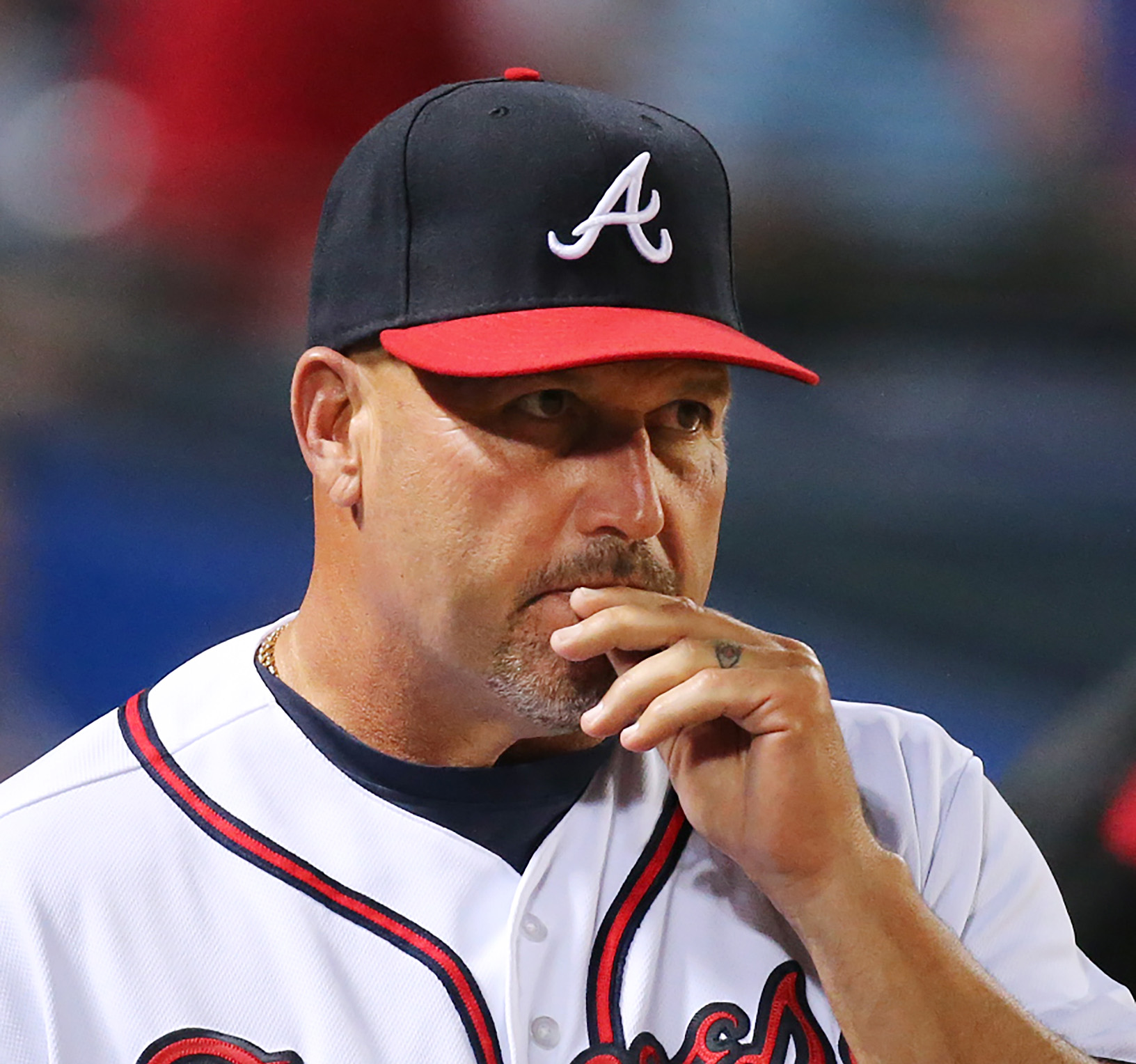In an unexpected turn of events, former Atlanta Braves head coach Fredi Jesús González, who led the Braves from 2011 to 2016, is now part of the Los Angeles Dodgers’ coaching staff. González, who has long been admired for his leadership and baseball acumen, joins the Dodgers in a move that could potentially shake up the dynamics of the MLB coaching landscape.

However, what truly has fans and analysts buzzing is a recent message that González sent to his former Braves counterpart, current head coach Brian Snitker. With both coaches having had a history in Atlanta, their relationship spans multiple seasons and numerous memorable moments.
The Message to Snitker
Sources have confirmed that González reached out to Snitker in a recent conversation, providing some insightful and heartfelt words of encouragement and advice. Though the full contents of the message remain private, reports suggest that González congratulated Snitker on the Braves’ recent successes, including their World Series victory in 2021, and the team’s ongoing dominance in the National League East.
But the message wasn’t just about congratulatory remarks. González also reportedly offered advice on managing the evolving challenges of coaching at the highest level. Specifically, he spoke about how to manage the dynamic of a changing roster, dealing with the pressure of postseason expectations, and fostering a team-oriented environment despite external distractions.
González’s Legacy with the Braves
Fredi González was at the helm of the Braves during a time of significant transition. While he was responsible for navigating the team through multiple playoff appearances, his tenure was also marked by the frustration of never getting past the divisional round. Despite this, González’s leadership helped establish a solid foundation that would eventually lead to Snitker’s World Series championship in 2021.
While his Braves teams often fell short in the postseason, González’s ability to manage the personalities in the clubhouse and his understanding of the game’s strategy made him a beloved figure in Atlanta. His departure after the 2016 season led to Snitker stepping in as interim manager, eventually securing the permanent position. The rest, as they say, is history.
Snitker’s Continued Success with the Braves
Since taking over the Braves full-time in 2016, Brian Snitker has enjoyed a renaissance, leading the team to consistent success and ultimately to a World Series championship. Under Snitker’s leadership, the Braves have become one of the most competitive teams in the National League, known for their dominant pitching staff, powerful offense, and unshakable team chemistry.
However, it’s clear that the road to success is not always smooth. With the Braves continuing to face the pressures of high expectations and fierce competition from both within their division and throughout the league, Snitker’s ability to adapt and keep the clubhouse in good spirits is more crucial than ever.
The Dodgers Connection
Now, with González moving to the Dodgers, many have been left to wonder what this change means for the larger MLB coaching ecosystem. The Dodgers, consistently a powerhouse in the National League, have seen their fair share of success in recent years, including winning the 2020 World Series. Bringing in an experienced manager like González to their coaching staff could help them navigate the unique challenges that come with staying at the top of the MLB standings year after year.
González’s message to Snitker is seen by many as a passing of the torch—a reminder that the world of baseball is filled with high expectations, but also with mutual respect and camaraderie between coaches, even when they’re on opposite sides. In this case, that message is about supporting each other through challenges and keeping a focus on the bigger picture: the game itself.
The Future of the Braves and Dodgers
As the Braves and Dodgers continue to chase their championship dreams, the connection between Snitker and González serves as a reminder that while baseball is a team sport, it’s also one built on relationships, mentorship, and guidance from those who have walked the path before. As the Dodgers look to continue their own pursuit of glory with González on board, all eyes will be on the Braves and Snitker to see how they respond to the ever-increasing expectations of their loyal fanbase.
The MLB landscape continues to evolve, and with former Braves coaches now coaching for rivals, the future of the league promises to be filled with even more intriguing narratives and unexpected twists. For now, however, it’s clear that both Fredi González and Brian Snitker will continue to play pivotal roles in shaping the future of their respective teams.
